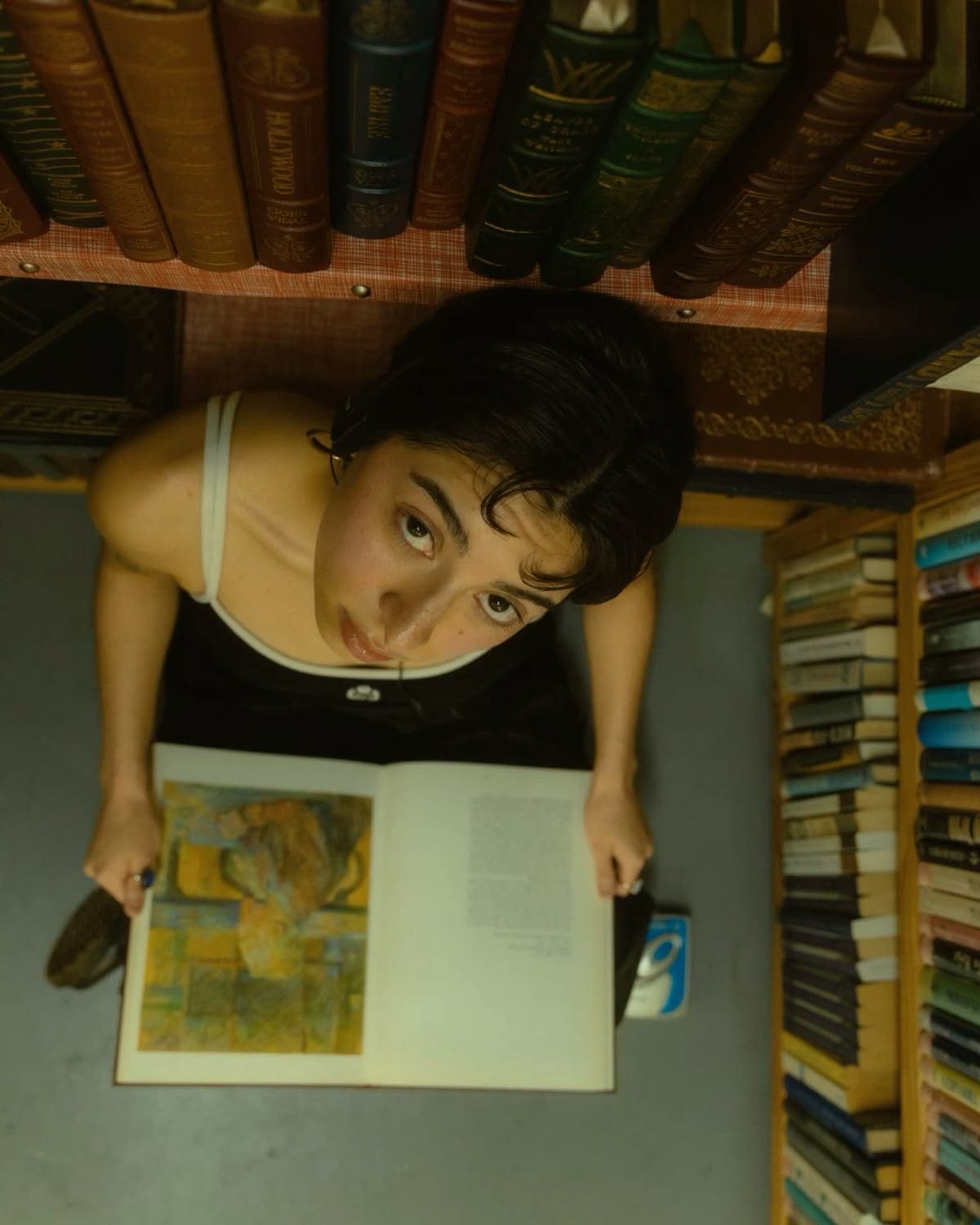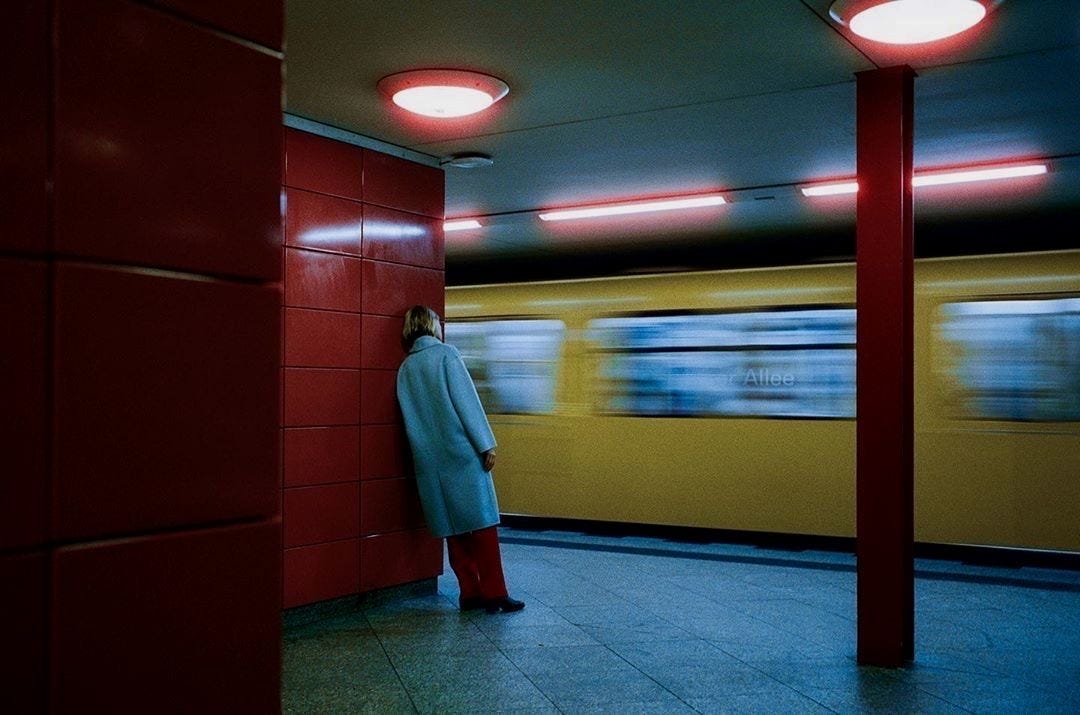there’s a particular kind of silence that follows an ending. a relationship, a job, a city, a version of yourself you spent years constructing—when it goes, the quiet that replaces it is deafening. at first, you resist it. you keep checking your phone, reaching for the familiar chaos, trying to rebuild something—anything—to avoid sitting with the empty space that’s been left behind. but then, one day, in a moment you don’t expect, you stop fighting. you surrender to the silence. and that’s when something shifts.
these endings are strange, aren’t they? they never quite happen the way you imagine. you expect them to be cinematic—sharp, clear, final. instead, they come in waves. the realization that something is truly over doesn’t hit all at once. it creeps in through small, mundane moments: when you catch yourself about to text someone and remember they’re no longer in your life. when you drive past an old place and feel nothing. when you wake up one morning and notice that the sadness isn’t sitting as heavy in your chest anymore.
we spend so much of our lives gripping onto things: identities, routines, expectations, people. we hold on tightly because we think letting go means losing control, means floating untethered into the unknown. sometimes, the most liberating thing we can do is loosen our grip. to trust that something good might come from the unraveling.
i’ve always been fascinated by the way people handle change. some go into full reconstruction mode, throwing themselves into distractions—new projects, new relationships, new obsessions—anything to avoid acknowledging what’s gone. others freeze, unable to move in any direction, stuck between mourning the past and fearing the future. and then there are the rare ones who understand that in order to move forward, they have to first sit in the mess, let the dust settle, and see what remains when they’re not frantically trying to piece things back together. however, sitting with the mess is hard. no one really tells you that. no one tells you that sometimes healing feels like waiting in an empty room with no exit sign. that sometimes, before things get better, they get unbearably quiet. that it takes real courage to not rush the process, to let yourself be undone before you find a way to put yourself back together.
there’s this old japanese practice called kintsugi, where broken pottery is repaired with gold, highlighting the cracks rather than hiding them. the philosophy behind it is simple: the break is part of the object’s history, and instead of erasing it, you honor it. imagine if we did the same with ourselves. if instead of rushing to smooth over the cracks, we allowed them to be seen. if instead of treating loss as something to be immediately remedied, we let it mark us in the way it’s meant to.
here’s the thing: endings are inevitable. no matter how much we resist them, no matter how hard we try to keep things the same, life has a way of undoing and remaking us. and the more we try to fight that, the more we suffer. it’s only when we stop resisting, when we allow ourselves to fully experience the transition—the discomfort, the uncertainty, the grief—that we find what’s waiting for us on the other side.
this is where it gets interesting: when something ends, you don’t just lose what was—you lose the person you were in that version of your life. and while that might sound terrifying, there’s also something wildly freeing about it. there’s a certain clarity that comes when you strip everything away. when you’re no longer performing for someone, no longer chasing a version of life that was never meant for you, no longer forcing yourself into spaces that never fit. you get to see what’s real. what actually matters. who you are when there’s nothing left to prove. i think we underestimate the importance of these in-between moments—the time after something ends but before the next thing begins. we treat them like inconveniences, like something to get through as quickly as possible. but what if they’re the most important part? what if these quiet, uncertain stretches are where we truly become ourselves?
there’s a tendency to think that reinvention means building something new as quickly as possible—choosing a new path, a new label, a new goal to chase. but maybe reinvention isn’t about rushing to create a new version of ourselves. maybe it’s about standing still long enough to see who we are without all the noise. maybe it’s about learning to trust yourself again, after life has knocked you down a few times. maybe it’s about sitting in the uncertainty and knowing that not having all the answers doesn’t mean you’re lost—it just means you’re in motion. maybe it’s about honoring what was, embracing what is, and stepping into what could be—not with desperation, but with trust.
amidst this change i used to think the worst thing in the world was being misunderstood. the idea of someone getting the wrong impression of me, misinterpreting my words, or assuming things about my life made me spiral into an existential crisis. i’d replay conversations in my head and craft imaginary rebuttals. there’s a unique kind of desperation that comes with wanting to be fully understood. a need to clarify, to explain, to correct the narrative. it starts early—when you’re a kid and someone accuses you of something you didn’t do, or when a teacher misreads your silence as disinterest rather than anxiety. then you grow up, and it only gets worse. people think they know you from snippets: a passing remark, a five-second interaction, a social media post. suddenly, you’re reduced to an assumption, a caricature, a rumor.
and what do we do? we scramble to fix it. we over-explain, overcompensate, perform a version of ourselves that feels palatable, easy to digest. we try to control the narrative, to make sure everyone sees us exactly the way we want to be seen. but here’s the thing: they never will. because people don’t see you as you are, they see you as they are.
i learned this the hard way, of course.
there was a time when i tried to be everything to everyone. i wanted to be liked, to be understood, to be perceived in the exact way i saw myself. but no matter how much i curated, softened, or clarified, there was always someone who misread me. someone who saw coldness where there was shyness. arrogance where there was ambition. aloofness where there was exhaustion. and it wasn’t just frustrating—it eventually became devastating. it felt like proof that i was failing at some invisible test. if only i had said it differently. if only i had explained more. if only i had smiled more, or less, or been more open, or more closed off. the “if onlys” were endless.
at some point, i had to ask myself: what am i really trying to win here? what would change if every single person i ever met understood me perfectly? would my life be better? would i be happier? or would i just be exhausted from the constant performance?
being misunderstood is inevitable. even the most articulate, self-aware, communicative person in the world will still be misinterpreted. we are all walking around with our own biases, wounds, and filters that shape the way we see each other. you could explain yourself perfectly, and someone will still get it wrong.
think about it: some of the greatest artists, thinkers, and revolutionaries in history were wildly misunderstood in their time. van gogh died penniless because no one saw the genius in his work. copernicus was labeled a heretic for suggesting the earth wasn’t the center of the universe. even frida kahlo, whose art was deeply personal, was constantly reduced to diego rivera’s wife rather than the force of nature she was. if people could misunderstand them, what makes us think we are immune?
there’s something deeply human about misinterpretation. we like to believe we are rational creatures, that we observe the world and form logical conclusions. but in reality, we see what we expect to see. we fill in the blanks based on our own fears, desires, and past experiences. someone who has been betrayed before will read dishonesty into sincerity. someone who has felt overlooked will see arrogance in confidence. someone who is insecure will assume judgment where there is none.
so what do we do with that?
for me, the shift happened when i realized that being misunderstood was not a failure, but a sign that i was living authentically. to be fully understood means to be easily definable. it means you fit neatly into a box that people can label, categorize, and move on from. but real people don’t work like that. we are contradictions, we are changeable, we are complex. if you are never misunderstood, you are probably being too careful. you are probably sanding down your edges, making yourself smaller, easier, more digestible. but if people sometimes get you wrong—if they misinterpret your kindness, your ambition, your silence—it means you are showing up in the world as you are, not as you think you should be. of course, there are people who will get you—who will read between the lines, who will understand the things you don’t even say. these are your people. hold onto them. but for everyone else…let them misunderstand you. let them think what they want. let them project, assume, misread.










I loved this. It made such sense. Thank you for sharing & helping me give myself permission to be me
This is like reading a piece out of my mind. Beautifully written.